El año pasado descubrí la existencia del Kyoto HISTORICA International Film Festival, que esta edición cumple ya 10 años de vida. Este festival pone en valor las películas de época, creando diferentes programas no solo de cine histórico actual, sino de intensa recuperación de clásicos del cine japonés -quizás su apartado más interesante-. En Japón no se tiene el concepto de filmoteca como, por ejemplo, en España, y allí para recuperar cine clásico en proyecciones con un mínimo de calidad hay que esperar a eventos especiales o festivales como este. En esta edición, además del Historica World, con unas cuantas películas de época internacionales de reciente factura, destacan dos programas especiales muy interesantes: Obras de dos directores destacados dentro del cine de época de la Toei, Tomu Uchida y Tadashi Sawashima; y un programa de recuperación de cine mudo local con obras del mismo Tomu Uchida, Kenji Mizoguchi y Daisuke Ito.
Para un amante del cine clásico japones como yo sería un placer poder asistir a este evento, pero como la distancia manda, tal como hiciéramos el año pasado, tendremos un enviado especial que nos comentará algunas de las películas que se proyectarán, ofreciéndonos sus impresiones sobe el festival. Por el momento os dejamos un extracto de su programación asiática, a la que complementan películas de época occidentales de diferentes estilos -la información está en inglés, por tiempo no he podido traducirlo en condiciones y prefiero dejarlo así, no es un lenguaje complicado-.
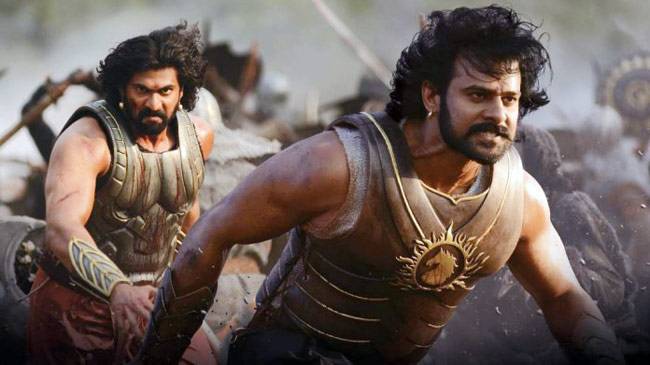
HISTORICA SPECIAL
The Mad Fox
Japón, 1962
Director Tomu Uchida
Cast Hashizo Okawa, Michiko Saga
Time 109min
In the reign of the Emperor Suzaku (930-946 A.D.), various mishaps happen after a strange white rainbow in appearance in the sky over Kyoto. The Emperor orders a famous astronomer, Yasunori, to consult a certain Chinese book of secrets to calm the fear of the people.Yasunori has two disciples, Yasuna and Doman. But he desires that Yasuna succeeds him because Doman is interested only in power. Assisted by Yasunori’s wife, Doman sends his follower, Akuemon, to kill Yasunori. Doman also steals the secret book and puts the blame on Yasuna and his sweetheart, Sakaki, Yasunori’s adopted daughter. Sakaki commits suicide and Yasuna kills Yasunori’s wife in his rage. He retrieves the secret book and sets out on a journey without destination. He meets her younger sister, Kuzunoha, with whom he falls in love at Sakaki’s home town. Lord Iwakura, Yasunori’s brother-in-low, advices the Court that the Crown Prince has no child, so it causes the confusion of society. Akuemon is summoned to catch a white female fox which is to be used for charming away the curse on the Prince. Akuemon fails to find a white female fox, but meets Yasuna who has protected the foxes. Akuemon beats Yasuna and takes Kuzunoha with him. But Yasuna is rescued by a white fox. The white fox asks his daughter to transform herself in the shape of Kuzunoha to live togeher with him. After that, they have a baby. When Kuzunoha escapes fromAkuemon and comes to Yasuna, the female fox in the shape of Kuzunoha disappears leaving a poem (tanka) beside her sleeping baby.
Baahubali: The Beginning
India, 2015
Director S. S. Rajamouli
Cast Prabhas, Rana Daggubati, Tamannaah, Anushka Shetty, Ramya Krishnan
Time 159min
The young Shivudu who grew up under a great waterfall, interested in the world beyond it, one day reaches the top of the waterfall. There, Shivudu meets and falls in love with the beautiful female warrior Avantihka. Shivudu finds out that her clan is in war with tyrant Bhallaladeva’s kingdom, and becomes a warrior to sneak in. Shivudu learns that his biological mother had been imprisoned there for 25 years, and that he is Baahubali, the prince of the kingdom.
Baahubali 2: The Conclusion
India, 2017
Director S. S. Rajamouli
Cast Prabhas, Rana Daggubati, Anushka Shetty, Ramya Krishnan, Subbaraju
Time 167min
Sequel to “The Beginning”. In Mahishmati, a lively kingdom of India from long, long ago. Shivudu who learns that he is the son of legendary hero Baahubali hears of the tragedy of his father’s loss of the throne, from his father’s vassal Kattappa. Amarendra Baahubali, announced the next king by Queen Mother Shivagami, hides his identity to go on a journey to inspect what is to become his own kingdom. He falls in love with princess Devasena of Kuntala Kingdom, but is forced apart from her by Bhallaladeva, who had lost the right to succession and began to plot against him. Shivudu fights against the tyrant Bhallaladeva had become, after learning the truth.
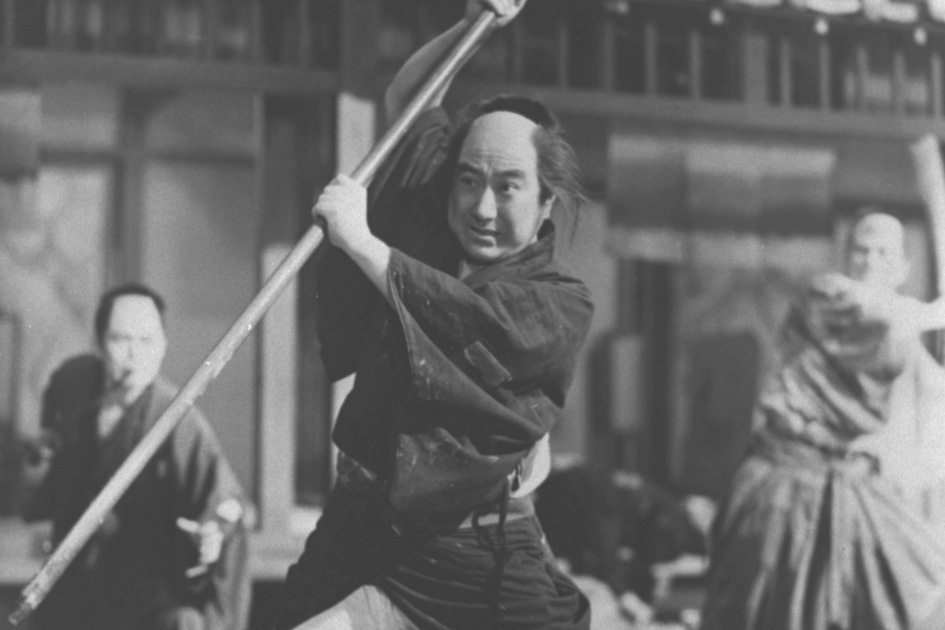
HISTORICA FOCUS
El peso y la luz que representan la época dorada del cine de época de la Toei; Tomu Uchida con sus sofocantes dramas cargados de una intensa lógica, Tadashi Sawashima con sus luces y velocidad, aunque sacrificando la coherencia. Dos formas de hacer cine redescubiertas.
A Bloody Spear at Mt.Fuji
Japón, 1955
Director Tomu Uchida
Cast Chiezo Kataoka, Teruo Shimada, Daisuke Kato
Time 94min
Sakawa Kojuro (Teruo Shimada), his spear carrier Genpachi (Chiezo Kataoka) and servant Genta (Daisuke Kato) are travelling the Tokaido towards Edo. Kojuro is a kind-heated lord, but unfortunately loves to drink and is a frenzy when drunk. Genpachi is anxious, as Genta is also a drinker.
Tale of A Mystical Sword
Japón, 1960
Director Tomu Uchida
Cast Chiezo Kataoka, Yoshie Mizutani
Time 109min
Earnest merchant Jiro-zaemon (Chiezo Kataoka) has a birthmark; although moderately wealthy, he gets turned down at every matchmaking. One day, Jiro-zaemon visits Yoshiwara with a client, and spends the night with courtesan Tamatsuru (Yoshie Mizutani)…
Travels of Hibari And Chiemi
Japón, 1962
Director Tadashi Sawashima
Cast Hibari Misora, Chiemi Eri, Chiyonosuke Azuma
Time 85min
Short-sighted Okimi (Hibari Misora) and clumsy Otoshi (Chiemi Eri) are footwear attendants at a theatre. Though they do love plays, there were sick and tired of looking after footwear. There comes in Houkaibo (Chiyonosuke Azuma), a beggar-monk who was in fact a yoriki (police officer) under disguise investigating drug dealers. The two, accidentally arrested amongst the others, go on a journey through the Tokaido with some consolation money from the magistrate’s office.
Bride of White Castle
Japón, 1961
Director Tadashi Sawashima
Cast Hibari Misora, Koji Tsuruta, Kokichi Takada
Time 85min
Okimi (Hibari Misora) is a weaver of a poor village by the Hakuba Castle, who dreams of the fairy tale that a young lord is looking for a bride. There, the handsome Kiritaro (Koji Tsuruta) comes to visit. Okimi believes that he is the lord in disguise, but in fact he is just a thief, the rascal lord, who had come to steal some money from a trunk. Sweet-talked by Kiritaro, Okimi brings a fortune for her young lord, and travels with Kiritaro and his party to Edo; however, the money gets stolen by some thugs on the way.
The Samurai Vagabonds
Japón, 1960
Director Tadashi Sawashima
Cast Kinnosuke Nakamura, Katsuo Nakamura, Hibari Misora, Denjiro Okochi
Time 79min
Munenaga Owari (Kinnosuke Nakamura) and Yoshinao Kii (Katsuo Nakamura) who were chosen as candidates to be the next shogun have no interest in boring lord-business. The heads of each of the two’s clans, as they keep trying to escape, tie the two to a palanquin to carry them to Edo. A journalist looking for some gossip of the next shogun comes to their dormitory causing havoc. The two, managing to get away, incidentally begin working for the papers run by Okimi (Hibari Misora). Not only do councillors against the two get involved as well as Kii and Owari, but Okimi’s unpredictable father (Denjiro Okochi) makes a big show.
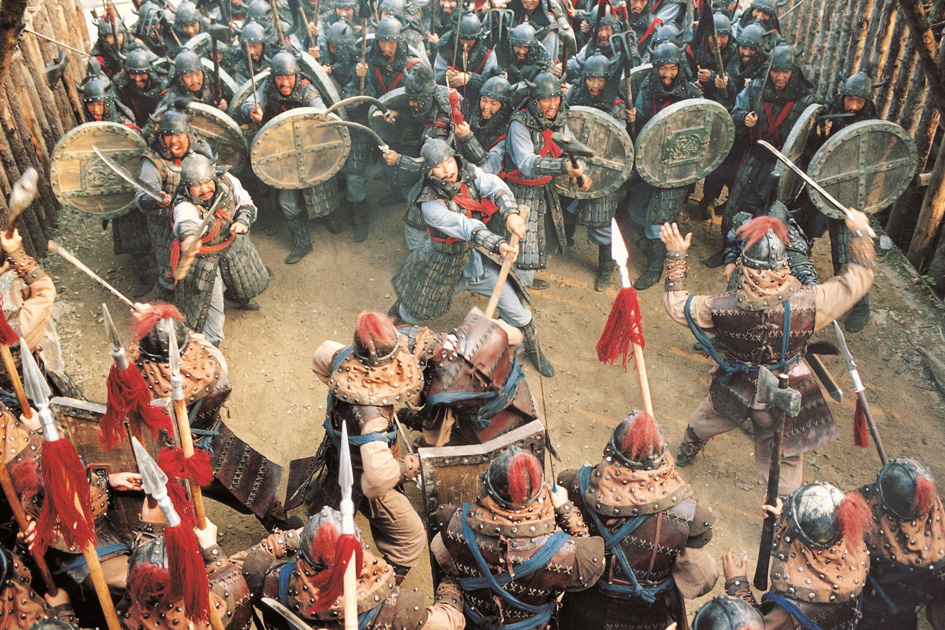
HISTORICA DECADE
Películas históricas que cambiaron las perpestica sobre las películas históricas, introducidas con motivo de los 10 años del festival y que ya estuvieron presentes en anteriores ediciones. VFX, comedia, acción, cine de autor, el concepto puede variar, pero cada película es muy inspiradora.
Jeon Woo Chi
Corea del Sur, 2009
Director Choi Dong-hoon
Cast Kang Tong-Won, Kim Yun-Seok, Im Su-Jeong
Time 136min
Goblins that had been sealed, break free and take the flute of prophecy. Taoist wizard Hwadam tries to retrieve the flute and seal the goblins, but the flute ends up in Jeon Woochi’s hands. Falsely accused by Hwadam for killing the Master, Jeon Woochi is imprisoned in a scroll with one half of the flute, to be unsealed 500 years later in the modern Seoul. Appraised film by Choi Dong-hoon of “The Thieves” (2011). The special effects and wire-action filled time-travel scenes are a succession of excitement; a spectacular piece of entertainment with no distraction allowed.
Once Upon a Time in a Battlefield
Corea del Sur, 2003
Director Lee Jun-ik
Cast Park Joong-hoon, Jung Jin-young, Lee Moon-sik
Time 101min
The Silla army siding with Tang, gathers 50,000 soldiers under general Kim Yoo-sin to break out in fights and games of human chess against arch-enemy general Kyebaek and his army of 5,000 Baekje soldiers – surprisingly holding out to a tough 4-4 game. The first historical film by maestro Lee Joon-ik that completely changed the image of historical films. He has succeeded in crystallising the war of the Korean peninsula into a drama by portraying it with a comedic taste and animating the complex relations. He breaks the box office records in his next film “King and the Clown”.
Judge Archer
China, 2012
Director Xu Haofeng
Cast Song Yang, Yu Chenghui, Li Chengyuan, Yenny Martin
Time 91min
A young man who grew up in a monastery meets the legendary “Judge Archer” who settles down conflicts between Martial Arts clans for the first time in the outside world. Succeeding the title from his master, the young man is asked to take revenge for the death of the client’s father. Xu Haofeng is currently one of the most noticed directors in China. His narrative as a martial artist himself, is like that of Seijun Suzuki who controls both body and time at will. This is a rare film that emphasises this point to the fullest; don’t miss it!
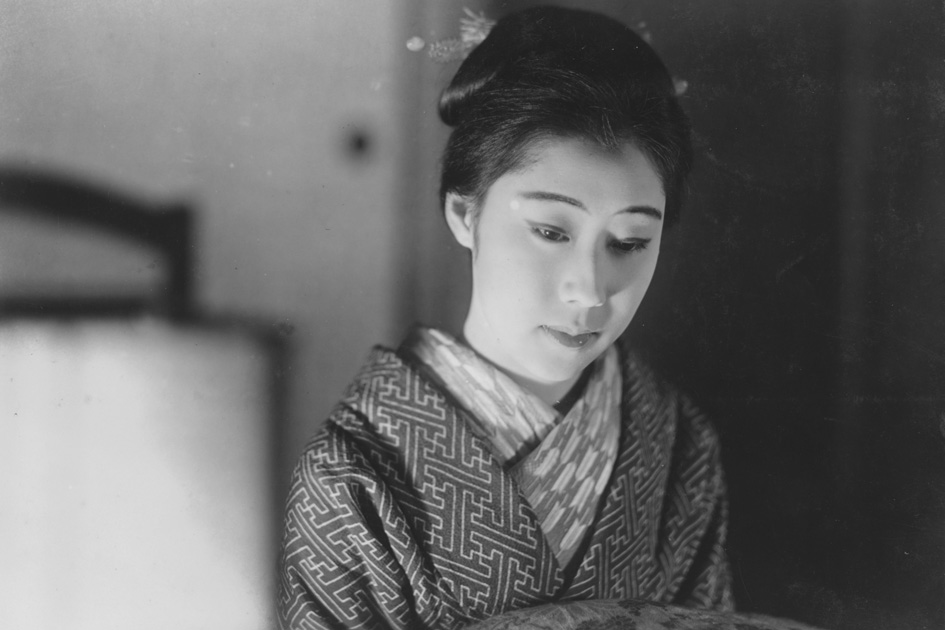
10th HISTORICA SPECIAL SCREENING: 150 Aniversario dela era Meiji
Orizuru Osen
Japón, 1935
Director Kenji Mizoguchi
Cast Daijiro Natsukawa, Isuzu Yamada, Ichiro Yoshizawa
Time 86min
An emotional Meiji era film by Kenji Mizoguchi. Based on the novel “Baishoku Kamo Nanban” by Kyoka Izumi. A woman is made mistress by a yakuza, then forced to help honey-trapping, frauds and criminal businesses; she even puts her body at stake to finance a young man who wishes to study. She leaves behind a paper crane in hopes that he will fly high and succeed like a crane before being taken captive; what awaited her was imprisonment and an incurable illness. Kenji Mizoguchi brutally portrays the woman let to be destroyed, with sometimes sadistic images and dark, damp undertones that seep the woman’s despair through the screen. Restored as part of the 2018 Kyoto Prefecture digital remastering development program.
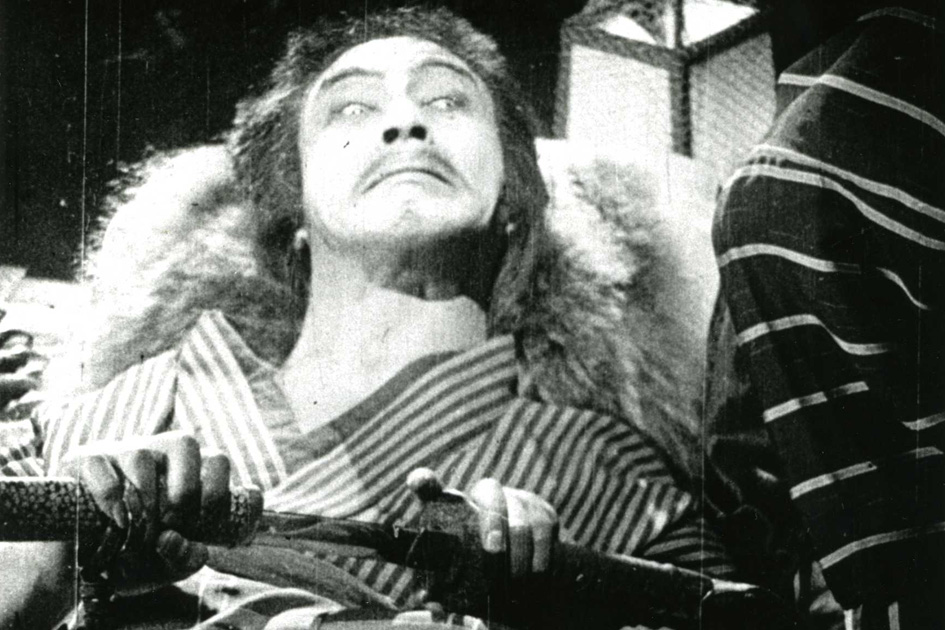
10th HISTORICA SPECIAL SCREENING: El cine mudo de Tomu Uchida, Kenji Mizoguchi y Daisuke Ito
Kigeki: Ase
Japón, 1930
Director Tomu Uchida
Cast Koji Shima, Hisako Takihana, Yasushi Yoshii, Heitaro Doi
Time 67min
Films from the late 1920’s to early 30’s were dominated by left-wing films, often referred to as the “proletarian films”. A masterpiece by Tomu Uchida renowned for his cynical and satirical “Tomu-comedies”. With his characteristic speedy and rhythmical action, he adds irony and humour into the proletarian film for another “Tomu-comedy”
The Police Officer
Japón, 1933
Director Tomu Uchida
Cast Eiji Nakano, Isamu Kosugi, Taisuke Matsumoto, Soji Ubukata
Time 121min
Based on the play “Omori Bank Robbery” by Toshihiko Takeda which portrayed the actual incident of the same name from 1932. Whilst being a film with political motives produced upon the cooperation of the Home Ministry and police, Uchida portrays the personal troubles of a police officer, being a civil servant, with elements of detective action.
Furusato no uta
Japón, 1925
Director Kenji Mizoguchi
Cast Shigeru Mokudo, Masujiro Takagi, Sueko Ito, Mineko Tsuji
Time 50min
The oldest surviving film by Kenji Mizoguchi. Produced by the Nikkatsu division of education (Kyoto) upon consignment by the Ministry of Education. A bright young boy, unable to study in the city for financial reasons; although he feels inferiority towards the students coming back from the city, realising their thoughtless and frivolous attitudes, he is ashamed of feeling inferior to them and regains his pride in agriculture and the beauty of life in the countryside.
Taki no shiraito
Japón, 1933
Director Kenji Mizoguchi
Cast Takako Irie, Tokihiko Okada, Ichiro Sugai, Bontaro Miake
Time 105min
The adaptation of “The Righteous and the Chivalrous” by Kyoka Izumi which he had wanted to do from before he became a director. Unlike the graceful and modern characters Takako Irie had played beforehand, in front of Mizoguchi, she transforms into a water magician of coquettish appearance who blindly wishes for the success of a student, portraying the emotions deep inside of women of the Meiji period. Appraised for being the memorial film of Mizoguchi’s silent film period, the sharp camera angles and racy flashbacks different to the typical methods of expression from his later films, are also must-see points.
Chōkon
Japón, 1926
Director Daisuke Ito
Cast Denjiro Okochi, Yuzuru Kume, Utagoro Onoue
Time 15min
The first film by Daisuke Ito in his Nikkatsu career, as well as being his first pairing with Denjiro Okochi. Two brothers who swear their life to the emperor are in love with the same woman. Only the final reel with a sequence of fights is left of the film – the fierce cross-cutting between the protagonist who helps his younger brother and love escape from Shinsengumi, and the two running away, shows a glimpse of Ito’s style. A digitally restored black and white print which has then been coloured with the same method of the silent film days will be screened.
Chuji Tabinikki
Japón, 1927
Director Daisuke Ito
Cast Denjiro Okochi, Naoe Fushimi, Hideo Nakamura
Time 111min
Both the director Daisuke Ito and leading actor Denjiro Okochi were 29 years old at the time of this film. Chuji had been portrayed as a selfless man by Matsunosuke Onoe and Shojiro Sawada until Daisuke Ito redefined him as a “defeated failure” with both greed and worries, to be introduced to the young as the new period film from Kyoto. This film has been appraised as the landmark of silent period films.
Zanjin zanbaken
Japónm 1929
Director Daisuke Ito
Cast Ryunosuke Tsukigata, Hiroshi Kaneko, Jinichi Amano
Time 26min
The second film from a pentalogy that Daisuke Ito had as a concept. A proletarian-like period film where farmers suffering the oppression of the castle lord and evil magistrate bond with a wandering samurai to cause a rebellion. Rumours have it that 20 times the budget of a normal film was used, however, only an action-based part exists. The speed from the horseback sword fighting scene and the rescue of the farmers, also on horseback, is tremendous.
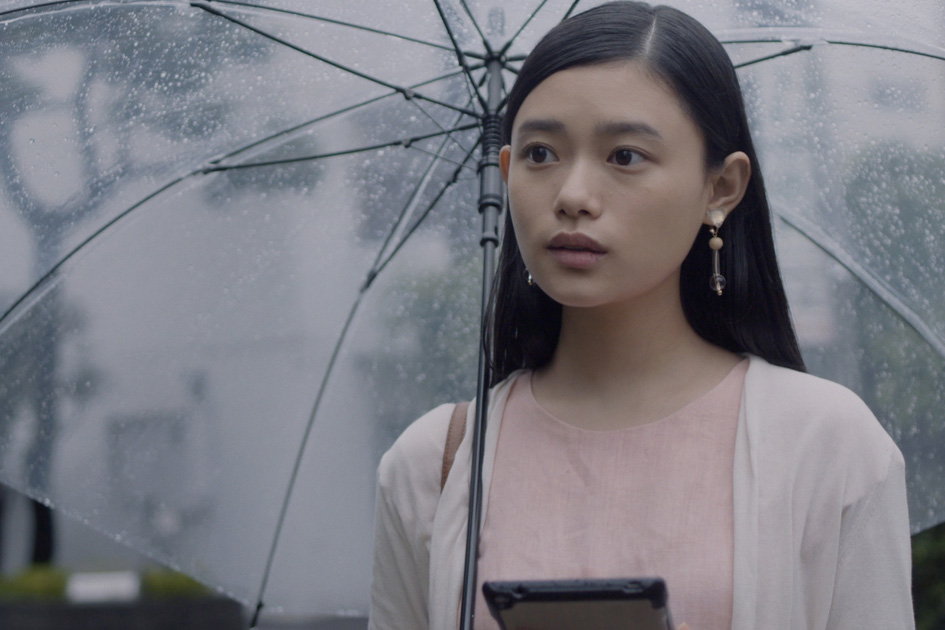
KYOTO FILMMAKERS LAB -COME BACK SALMON PROJECT-
Ten Years Japan
Japón, 2018
Director Chie Hayakawa, Yusuke Kinoshita, Megumi Tuno, Akiyo Fujimura, Kei Ishikawa
Cast Hana Sugisaki, Jun Kunimura, Taiga, Satoru Kawaguchi, Chizuru Ikewaki
Time 99min
“DATA” (directed by Ai Tsuno) is a story of a girl who inherits the personal data of her deceased family as digital heritage. “Itazura Doumei (Mischief Alliance)” (Yusuke Kinoshita) portrays children whose morals have been raised in an AI educated area. “Utsukushii Kuni (A Beautiful Country)” (Kei Ishikawa) portrays a young man from an advertising firm in charge of a campaign for the draft, where conscription to the SDF has been taken into order in Japan. “PLAN75” (Chie Hayakawa) is a future version of the folklore Ubasute where euthanasia is recommended to the elderly over 75 years old. “Sono Kuuki ha Mienai (That Invisible Air)” (Akiyo Fujimura) portrays a mother and child made to live underground due to air pollution. An anthology film of five stories.

Hacer Comentario